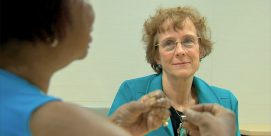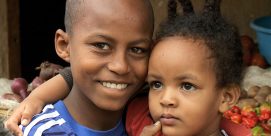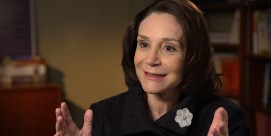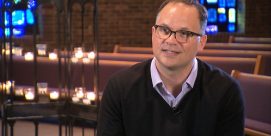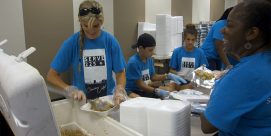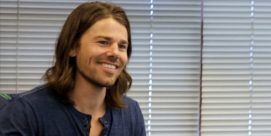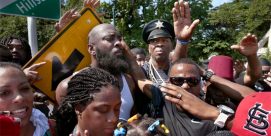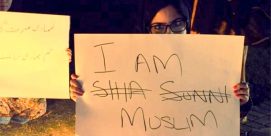Topic: Ethics
“This is a silent revolution that’s transformed health care so that every person can have their inner life, their spirituality addressed as an integral part of their care,” says Dr. Christina Puchalski, founder and director of the George Washington University Medical School’s Institute for Spirituality & Health. More
“Around the world humanitarian financing is at the breaking point. Humanitarian appeals for South Sudanese and Burundian refugees in Uganda are severely underfunded,” says Charles Yaxley, spokesman for the UN High Commissioner for Refugees in Uganda. “That leaves real gaps in our humanitarian response.” More
“We’re at a moment where we’ve adopted a new technology,” says MIT technology and society professor Sherry Turkle. “We’ve been vulnerable to its seduction, and we’re also ready to say this has led us not to a good place in terms of how it’s affected our relationships. It’s time for a change.” More
“Stereotypes lose their power because they’re replaced by true, authentic relationships,” says Rev. Josh Graves, pastor of the Nashville megachurch Otter Creek Church of Christ, describing his project of engagement between Christians and Muslims. “It’s very hard for people to care about people they don’t know. That’s just true of humans wherever you are on planet earth.” More
“It’s just amazing to see how it doesn’t matter what race you are, anything like that; it’s just everybody has the same needs, so we all pitched in and just started helping out,” says Jared Stockstill, administrator at Bethany Church in Baton Rouge. “So I just feel like it’s really gone a long ways toward bringing us together, the community back together, and everybody’s pitching in and helping.” More
“If I can just be a small part of a revolution in business where it ceases to be just about making money but it’s about solving problems and service, that would be enough to keep myself going,” says Dan Price, CEO of Gravity Payments. More
“I always want to tell people that Ferguson erupted at a time when it had the eyes of the world on it, much like Birmingham, Alabama, which is where I’m from—when people saw from all over the country, all over the world what racial oppression looks like,” says UCC Pastor Traci Blackmon, a Black Lives Matter leader. “That happened in Ferguson, too. But sometimes we get so caught up in that particular place that we don’t recognize that Ferguson is everywhere.” More
“As a Shia, I see myself as a Muslim first. Yes, I am Shia, I’m very proud to be Shia, but when I consider myself and someone asks me what religion I am, I don’t say I’m Shia, I say I’m Muslim. And I think that’s how I identify, and I’ve always identified as that,” says Nazeen Zaidi. More
“The income and wealth disparity in our nation that’s tearing us apart, the anger, the fear, the judgmentalness, the racism that we’ve seen in our country—it’s tearing holes in the fabric of our society,” says Sister Simone Campbell, leader of Network Lobby’s Nuns on the Bus project. “Can we step together into a future, as opposed to pulling apart for partisan gain?” More
“I’m very interested in seeing some basic values return to the country. I care very deeply about life, I care deeply about marriage, I care deeply about religious liberty, I care deeply about issues of fiscal solvency,” says Reverend Jim Garlow, pastor of Skyline Wesleyan Church in San Diego. “The national debt is a biblical-moral issue to me, thou shalt not steal from future generations.” More

